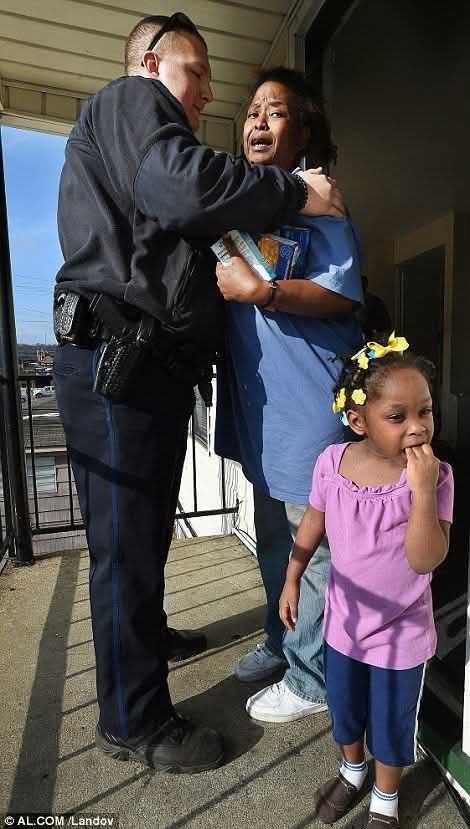I didn’t plan on walking into that corner store to steal. But my youngest was crying from hunger, and I had just $1.67 in my wallet. The eggs were $4.29—still out of reach. I stared at them for a long time, hoping for another option. But in a split-second decision driven by desperation, I slipped the carton into my coat.
I was caught.
The cashier didn’t yell. He looked at me and asked quietly, “You planning to pay for those?”
Panic took over—I ran. Not far, though. A police cruiser pulled up just minutes later.
The officer who approached me wasn’t angry. He was young, calm, and had kind eyes. “Mind showing me what’s in your coat?” he asked gently. I handed over the eggs, heart racing.
“Do you have kids?” he asked. I nodded, unable to speak.
He walked away to speak with his partner. I expected handcuffs.
But when they returned, they weren’t holding arrest paperwork. They came back with two bags of groceries—bread, peanut butter, bananas, juice boxes. And the eggs.
“We’re not here to punish someone trying to feed their family,” one of them said softly.
I could barely get the words out to thank them. That night, I made scrambled eggs for my kids like it was a holiday meal.
A Note That Changed Everything
Two days later, I found a slip of paper under my door. It read:
“We saw what happened. You’re not the only one.”
The message kept me awake. Was it judgment? Was it support? I didn’t know. Every hallway sound made me anxious. My building wasn’t exactly known for community spirit, and now I felt exposed.
Then, a paper bag appeared outside my door—no name, just a smiley face drawn in marker. Inside: pasta, soup, marinara. That night, my kids and I had a hot meal. They called it a feast.
Their joy reminded me: the little things matter most.
The Turning Point
I knew I couldn’t rely on chance kindness forever. I had lost my diner job weeks earlier and had been sending out resumes with no luck. Still, I bundled up my youngest and headed to the community center bulletin board.
There it was—a flyer for a part-time bakery job. I tore off the number and promised myself I’d call as soon as we got home.
Later that day, another note appeared:
“The struggle is real. Meet me in the second-floor laundry room at 5 p.m.”
No name. Just those words. I hesitated but went.
There I met Nerine. A woman in her fifties with a kind face and a worn coat. She had been the one leaving the notes and food. She was raising her sister’s children, behind on rent, hustling for survival just like I was.
We shared stories, tears, and laughter. In that laundry room, I found community.
When Kindness Becomes Contagious
The next morning, I made the call. I got an interview at the bakery.
Nerine lent me her nicest blouse. It had been a while since I felt hopeful—but now I did.
That week, kindness spread. Someone started a coat exchange in the lobby. Another neighbor left a bundle of baby clothes with a note: “Take what you need.” A flyer went up for a building-wide potluck: “Everyone’s welcome.”
Something had shifted. We weren’t just surviving anymore. We were beginning to look out for one another.
A New Beginning
My interview at the bakery was with a man named Darrell. After just a few questions, he offered me the job—part-time for now, with room to grow.
When I got home, Nerine was waiting. I told her the good news, and she hugged me tight.
That evening, I sat on the couch with my kids, cartoons playing, the warm light of the kitchen casting a glow across the room. I thought about how close I’d come to giving up—and how a carton of eggs, a few kind strangers, and handwritten notes changed the direction of my life.
Sometimes, Hope Starts with One Small Act
This world isn’t perfect. But every now and then, it offers us something beautiful: a reminder that we’re not alone. That even in the darkest moments, compassion can light the way.
Whether it’s a stranger with groceries, a neighbor’s smiley face bag, or someone brave enough to say “I see you”—those gestures matter.
